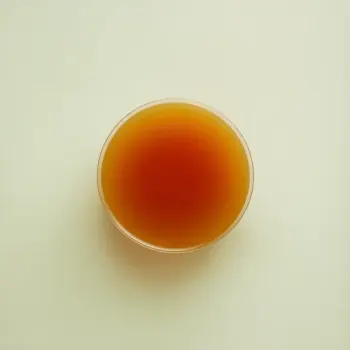Water and vegetable broth are fundamental liquids used in cooking. Water is flavor-neutral and versatile, while vegetable broth offers a rich flavor from simmered vegetables and herbs, enhancing the taste of dishes like soups, rice, and sauces.

Water is the most essential and versatile ingredient in the kitchen; it is the universal solvent that is used in everything from boiling to steaming, and it serves as the base for countless dishes.

Vegetable broth is a flavorful liquid made by simmering vegetables, herbs, and sometimes spices. It's a key ingredient for adding depth and an extra layer of flavor to dishes that water alone cannot provide.
While water is neutral and does not impart flavor, vegetable broth brings a complex profile of tastes from its components. Texture-wise, water is light and has no body, whereas vegetable broth can have a subtle viscosity. Water is a pure ingredient, whereas broth is a composite of various ingredients.

Your ultimate Recipe Box, Meal Planner, and Cooking Class all in one
In simple broths or when making a soup where the main ingredients release flavors into the liquid, water is the best choice. It allows the primary ingredients, like vegetables or meat, to shine. Vegetable broth is best used in soups that require a more complex flavor base. It's particularly suitable for vegetarian or vegan soups where the broth can compensate for the absence of meaty flavors.
When cooking plain rice, water is typically used. It's also suitable for recipes where the rice needs to absorb the flavors from other components like spices or sauces added after the rice is cooked. For a pilaf or a risotto, vegetable broth is a perfect liquid to infuse the grains with more flavor. The broth's richness enhances the overall taste profile of the dish.
Water can be used to thin out sauces or to adjust consistency without altering flavor. It's also useful for emulsifying sauces where clarity of the primary ingredients' flavors is desired. Vegetable broth works well in sauces that benefit from a more rounded, robust flavor. It's excellent for gravy, reduction sauces, or as a base for vegetarian stews.
Water contains no calories, while vegetable broth typically has very few calories but can contain a small amount of nutrients from the vegetables used to create it.
| Nutrient | Water ( per Cup ) | Vegetable Broth ( per Cup ) |
|---|---|---|
| Fat | 0g | 0-0.5g |
| Sodium | 0mg | 200-900mg |
| Calcium | 0mg | 0-20mg |
| Protein | 0g | 0-1g |
| Calories | 0 | 10-30 |
| Carbohydrates | 0g | 2-4g |
Vegetable broth can have additional nutrients but water is calorie-free and essential for life. 'Healthier' depends on the context of the diet and the specific health goals of an individual.
While often you can substitute water with vegetable broth for added flavor, it's not suitable for all recipes, especially those that require a neutral-tasting liquid.
Vegetable broth adds a minimal amount of calories compared to other ingredients in a dish, making it a flavorful addition without greatly increasing caloric content.
Yes, homemade vegetable broth can be made by simmering vegetables and herbs. It can be stored in the refrigerator for up to a week or frozen for up to 3 months.
Vegetable broth is typically suitable for vegetarian and vegan diets, but those on low-sodium diets should check the broth's sodium content or opt for a low-sodium version.